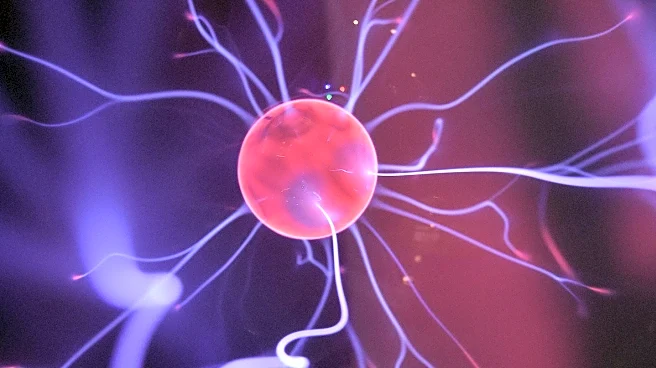What's Happening?
Research has identified rare heterozygous variants in the SETBP1 gene that disrupt DNA-binding, transcription, and neuronal differentiation, leading to a heterogeneous neurodevelopmental disorder. The study included 18 individuals with these variants, which were found to cluster in the SKI domain of the SETBP1 protein. The variants were associated with a broad spectrum of clinical features, including intellectual disability, motor impairment, and facial abnormalities. The research highlights the complexity of genotype-phenotype associations and the challenges in diagnosing and developing personalized therapies for affected patients.
Why It's Important?
Understanding the impact of SETBP1 variants on neurodevelopment is crucial for developing targeted therapies for affected individuals. The study provides insights into the molecular mechanisms underlying the disorder and emphasizes the need for comprehensive genetic analysis in patients with unexplained neurodevelopmental symptoms. This research could pave the way for more accurate diagnoses and the development of personalized treatment strategies, improving outcomes for patients with rare genetic disorders.
What's Next?
Further research is needed to explore the functional consequences of SETBP1 variants and their role in neurodevelopmental disorders. This includes investigating potential therapeutic targets and developing interventions that can mitigate the effects of these genetic mutations. Collaboration between geneticists, clinicians, and researchers will be essential to advance our understanding and treatment of these complex conditions.
Beyond the Headlines
The study raises ethical considerations regarding genetic testing and the potential for discrimination based on genetic information. As genetic research advances, it will be important to ensure that patients' rights and privacy are protected while promoting access to innovative therapies.









